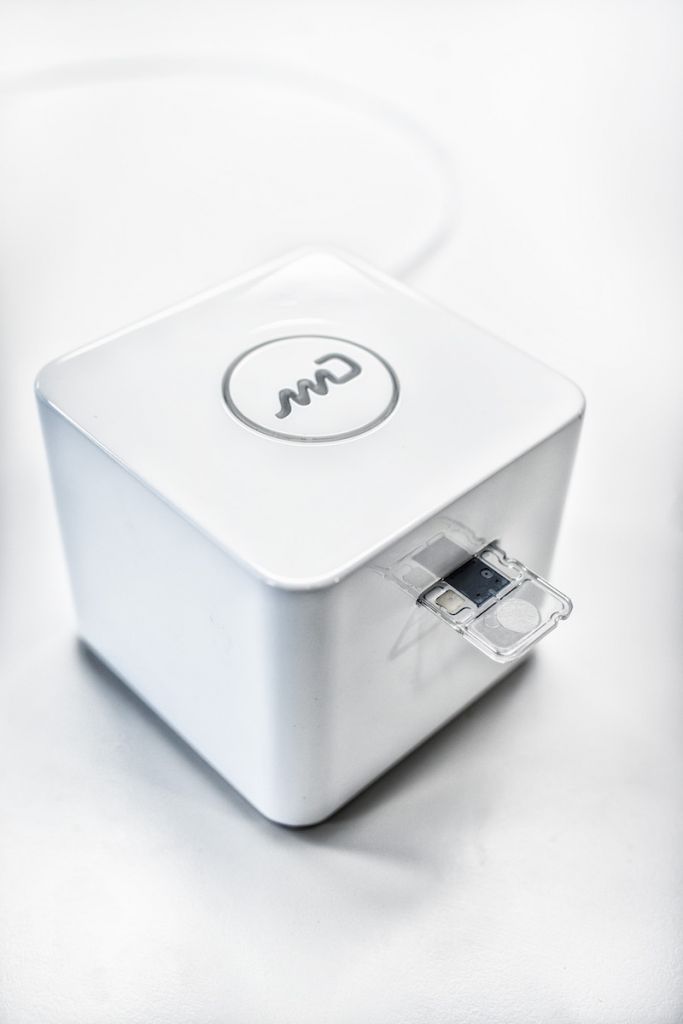Newsletter Signup - Under Article / In Page
"*" indicates required fields
The Belgian startup miDiagnostics is developing technology to diagnose diseases quickly, accurately, and at the point-of-care using a silicon lab-on-a-chip and nanoscale-precision microfluidics.
Having good diagnostics in place can save lives. This principle is especially true in times of crisis, such as the current coronavirus pandemic. However, producing good diagnostics isn’t a simple task.
In modern healthcare systems, diagnostic tests generally involve a trade-off between speed, accuracy, and cost. Most tests are carried out centrally in dedicated labs, which can be limited by time and capacity. Although there are options available for quicker point-of-care diagnoses, they often involve expensive machinery or aren’t accurate enough to base clinical decisions on.
Spun off from the Leuven-based Interuniversity Microelectronics Centre (IMEC) in 2015, MiDiagnostics aims to overcome this issue by developing a diagnostic lab-on-a-chip platform that could reconcile speed with cost and accuracy of testing. Its technology consists of tiny disposable silicon chips that analyze biomarkers in a drop of blood such as viral and bacterial DNA, and return results in around ten minutes.
“Our silicon chip allows miniaturization of diagnostic tests, reducing the cost per test and enabling them to be conducted as close as possible to the patient, with an almost immediate read-out of results,” Nicolas Vergauwe, CEO of miDiagnostics, told me.
“They can also be easily mass-produced, leveraging existing silicon chip manufacturing technologies available across the globe.”
The labs-on-chips use capillary forces to process the blood samples, such as detecting the amount of blood and diluting it. The samples are then analyzed by a specially designed reader device, which can be adapted to detect cells, genetic material from pathogens, or proteins and small molecules.
The company uses the term ‘nanofluidic processor’ for its silicon chips. According to Vergauwe, this means that the chips’ measurements are precise to within a tenth of a nanoliter, or around a millionth of a drop of water.
“To our knowledge, such a level of control is only possible by applying silicon chip technology,” Vergauwe explained.

MiDiagnostics is confident that it can stand out amidst the many companies offering their own point-of-care diagnostic devices, such as the Swedish firm Qlife and the UK diagnostics firm Binx Health — formerly known as Atlas Genetics — whose home-use kit can detect sexually-transmitted infections, such as Chlamydia, within 30 minutes.
“Many of our competitors focus on delivering tests that measure a single or a few biomarkers in a sample,” Vergauwe said.
“However, if you want to understand the underlying cause of a certain symptom or condition, for instance, fever, you need to collect enough information from a single sample and therefore need to simultaneously measure a broad set of biomarkers.”
Currently at an early stage of development, this lab-on-a-chip technology comes with its own challenges. For example, the chips need to use only capillary forces to process the liquid in order to work autonomously — a big technical puzzle.
“We have effectively had to reinvent the way fluids can be precisely manipulated on a very small scale, without the use of large and complex instrumentation,” Vergauwe told me. “To achieve this, precision engineering and deep scientific expertise are required.”
Interestingly, miDiagnostics is also working with NASA to test the potential of its lab-on-a-chip device in monitoring the health of astronauts in zero-gravity conditions, which could demonstrate its point-of-care potential.
The company expects to commercialize its first product for the measurement of total blood count in the next few years, and raised €14M last month to fund this push. Until then, it remains to be seen whether miDiagnostics can truly deliver on its ambitious promise to provide cheap, fast, and accurate diagnostics.
Right now, diagnostics companies such as the French Novacyt and UK firm Mologic have been thrown into the limelight thanks to the ongoing Covid-19 pandemic. While miDiagnostics isn’t working on a specific Covid-19-related test, Vergauwe believes that diagnostics will undergo a huge change thanks to the crisis.
“The centralized, lab-based model isn’t working [anymore],” he concluded. “We predict a paradigm shift in the way diagnostics are carried out – moving from the lab to other appropriate settings – whether a community health center or someone’s home.”
Images from Shutterstock and miDiagnostics






